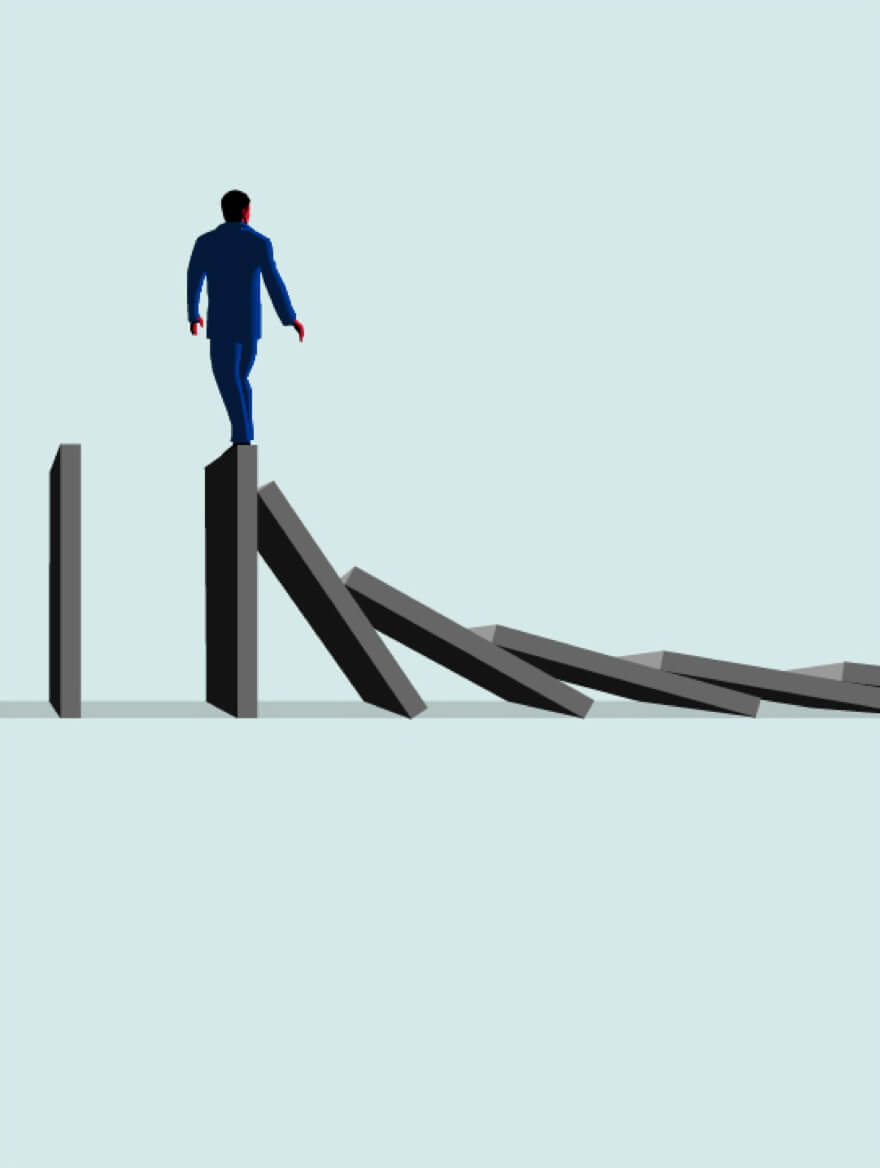Anxiety
Dr. Jeff Brault describes how to recognize and deal with your cancer-related anxiety. Download the audio file
Introduction

Anxiety is a normal reaction to stress. When you have cancer, you are more likely to have feelings of anxiety. Because of this, you may not feel like you want to socialize as much. That can affect your quality of life. At times, you also may struggle to complete your usual activities. Anxiety may cause the following:
- Worry.
- Restlessness.
- Muscle tension.
- Trouble sleeping.
- Feeling uneasy, scared or nervous.
- Crankiness, impatience or irritability.
- Trouble concentrating.
- Physical changes. These may include a faster heartbeat, sweating and trouble breathing. They also may include headache, nausea, diarrhea, dizziness, and high blood pressure.
Having good mental health is important for healing. There are things you can do to manage anxiety. It often helps to keep track of the strategies you try in a tracking log (a template is available here). The following information explains ways to help manage anxiety. Additional information is available here.
Helpful tools
Anxiety and Chronic Pain or Illness
This piece explains what anxiety is and how pain and illness can cause or trigger anxiety. It also gives examples of things you can do to to help control your anxiety in healthy ways.
Medical therapies
Sometimes it is helpful to see a psychiatrist before you start anxiety medication. Medication for anxiety can help you to:
- Get through medical procedures and cancer treatments. Talk to your care team about short-acting and long-acting medication options.
- Improve other symptoms, such as depression, nausea and trouble sleeping.
Behavior strategies
- Seek out activities that bring you joy.
- Stay social. Spend time with people who bring you joy. You may feel you don’t want to take part in activities or social gatherings because you don’t want people to focus on your cancer. But avoiding things that make you anxious can actually make anxiety worse. Write a list of things that have helped you feel better in the past. Think about how you can continue to do things that make your life enjoyable.
- Try cognitive behavior therapy (CBT) skills to help challenge unwanted thoughts, feelings or behaviors. You can learn more about CBT here. There is also a self-guided module, Cognitive Behavior Therapy-Insomnia, which you can cover in 2 to 6 weeks. It includes goal setting prompts, knowledge tests, and informational videos.
- Work through your fears—don’t avoid them. Unwanted thoughts that won’t go away can make anxiety worse, especially regrets about the past. It takes a lot of energy to avoid unwanted thoughts, which can add to fatigue.
Common thoughts after a cancer diagnosis may be about fear of the unknown or fear of cancer coming back. As your work through your fears, it’s possible you may feel worse for a little bit before you feel better.
Write down your worries. Separate them into two categories: worries you can control and worries you can’t control. Focus on problem-solving for the things you can control. Try to accept what you cannot control.
Try relaxation strategies, such as:
- Belly breathing.
- Guided imagery. Many examples can be found in popular smart phone apps or on the internet.
- Using helpful images. Think of a safe, comfortable place.
- Thinking about and finding meaning in what you still can do.
Learn more about relaxation strategies here.
Try these behavior strategies when you feel anxious:
- Call a loved one, go for a walk, pet your dog, do a crossword puzzle.
- Say a prayer or meditate.
- Relax your body. Take a bubble bath or do deep breathing.
Learn more about behavior strategies here.
Tools for behavior strategies
What is Cognitive Behavioral Therapy (CBT)?
This piece explains what Cognitive Behavior Therapy is and how it might help you. It also describes ways to identify what might trigger your distress and ways to cope with your distress.
Physical activity
Stay active as you are able. Even if you cannot be as active as you were before the cancer diagnosis, exercise helps anxiety. Physical activity, such as walking, exercise classes, or yoga, can:
- Ease and speed up your recovery after cancer treatments.
- Help you have more energy throughout the day.
- Help you feel relaxed later in the day.
Learn more about physical activity here.
Tools for daily movement
My Road to Better Health: Move Daily
Keep a log and get tips to help keep you moving to feel better.
Integrative therapies
- Try daily meditation or mindfulness practice. These practices often help you focus on the present moment.
- Mind-body therapies, such as massage, acupuncture, reflexology, and Reiki can help you feel more relaxed.
- Art, dance, and music therapies can also help you feel more relaxed.
Tools for physical activity
My Road to Better Health: Move Daily
This piece explains how exercise can help you improve your physical and mental health. It also provides tips for getting started on an exercise plan and suggestions for sticking to your plan.
Diet
Limit caffeine and other stimulants. This includes coffee, soda, tea, energy drinks, nicotine, and tobacco. Stimulants can increase your heart rate, which can make you feel anxious, especially if you are not moving around much.
If you drink caffeine or use tobacco, you may feel worse for a little while as you cut back or quit. Your health care team may suggest you slowly cut back on stimulants. Some people use medication to help manage withdrawal symptoms. Talk with your health care team if you want help.
Quitting nicotine or tobacco can be very difficult. However, quitting can improve your body’s ability to fight cancer and it can help cancer treatments to be more effective. Your health care team can make quitting easier with medications, counseling, or other tools. Talk with your health care team if you want help to quit nicotine or tobacco. Your health care team is here to help.
Try to limit alcohol. Alcohol may help you temporarily relax, but it can worsen anxiety later and in the long-term. Also, alcohol may reduce sleep quality through the night, which in turn can make anxiety and other symptoms worse.
What friends and family can do
Family members and friends can help support you when they:
- Talk about anxiety and fears with you but do not force you to discuss your feelings before you are ready.
- Listen to you without judgement.
- Do relaxation exercises with you, such as deep breathing or visualizing pleasant scenery.
- Help with chores or situations, such as coming with you to appointments that you find stressful.
- Give you books, CDs or other resources that help lessen your anxiety.
They can also help you with setting goals and making action plans.
Tools for friends and family
Ways to Manage Your Feelings and Thoughts
This piece lists examples of things you might do to help you manage difficult feelings like anxiety, anger or panic.
What if I want more help to manage anxiety?
There are health care specialists who can help you manage anxiety, such as the following:
- Social worker. A Clinical Social Worker is a licensed mental health professional. Social workers can provide counseling and resources related to grief and loss, adjustment to illness, caregiver support, and psychosocial stressors, which can affect your anxiety symptoms.
- Psychologist. He or she can counsel you as you cope with cancer and symptoms related to cancer. A psychologist also can help if you struggle with negative self-talk, such as supporting you with mindfulness exercises and cognitive behavioral therapy, called CBT.
- Psychiatrist. A psychiatrist can prescribe medications to help depression or anxiety.
- Integrative medicine practitioner. He or she may suggest treatments to help you feel less stress. These may include acupuncture, mindfulness meditation and massage.
- Palliative care provider. Palliative care focuses on supporting your emotional, spiritual, and practical needs, as well as supporting caregivers. A palliative care provider may utilize different techniques to help your anxiety including relaxation techniques, supportive counseling, and/or medications.
- Physical therapist or physical medicine and rehabilitation physician. Cancer and its treatment may make physical activity more difficult, which may increase anxiety. And some people may not be sure about which activities are safe for them. A physical therapist or physical medicine and rehabilitation physician can partner with you to find activities right for you.
Talk with your care team about helpful resources available in your community.
There also are self-directed materials with more information to help you manage anxiety. You can get these materials by:
- Going online at cancereducation.mayoclinic.org
- Asking your care team.
Need more help?
What’s Important to You? Setting Goals and Making Changes Based on What You Value
This piece outlines steps for setting attainable goals to make changes in your life. It also explains why making changes based on what you value is important.
